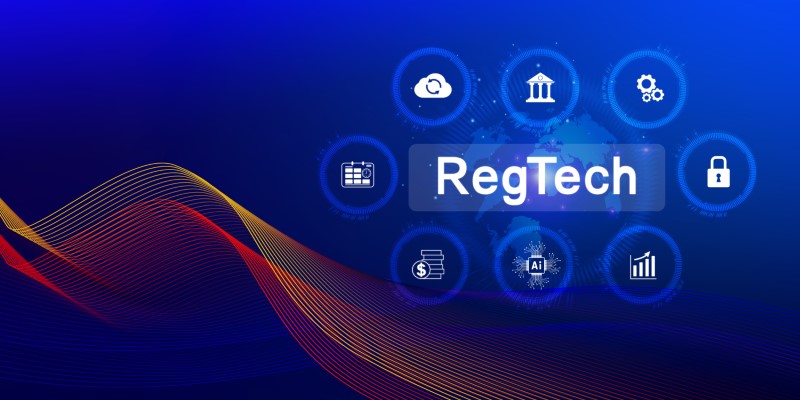How Is RegTech Changing Financial Compliance?
The financial sector is rapidly evolving with increasing regulatory demands, and the role of Regulatory Technology (RegTech) in reshaping compliance is more significant than ever. Leveraging advanced technologies like AI, blockchain, and machine learning, RegTech is revolutionizing how financial institutions navigate complex compliance requirements. This article delves into the rise of RegTech, its benefits, its transformative impact on regulatory reporting, and the challenges and future trends shaping its adoption.
The Rise Of RegTech In The Financial Sector
RegTech, initially an offshoot of FinTech, has now carved its niche in the financial landscape, becoming essential for regulatory compliance. Unlike FinTech, which focuses on delivering a broad range of financial services, RegTech focuses on refining compliance processes across various industries. The complexity and rapid regulation changes have made RegTech indispensable, enabling firms to adapt swiftly to regulatory updates and manage business risks effectively. This rise in RegTech is attributed to its ability to provide real-time monitoring, fraud detection, and due diligence processes, which are crucial in today's financial environment.

Critical Benefits Of RegTech For Compliance Management
RegTech offers several advantages that enhance compliance management:
Automation And Accuracy
RegTech employs AI and machine learning (ML) to automate compliance, reduce manual errors, and enhance accuracy. These technologies continuously monitor vast data, enabling early detection of compliance breaches and predicting potential risks.
Predictive Risk Management
By leveraging historical data, RegTech solutions anticipate compliance challenges, allowing institutions to address them proactively before they escalate into more significant issues.
Enhanced Due Diligence
AI and ML significantly improve due diligence processes, especially in anti-money laundering (AML) and Know-your-customer (KYC) checks, by quickly analyzing complex client data.
Blockchain Integration
Blockchain technology offers unparalleled transparency and security, particularly for identity verification and regulatory reporting. Its decentralized nature creates a tamper-proof record of transactions, ensuring data integrity and facilitating compliance audits.
Cost-Effectiveness And Scalability
Cloud computing enables scalable RegTech solutions that adapt to changing regulations, reducing the costs of maintaining and updating compliance systems. Cloud platforms also facilitate collaboration between regulatory bodies and financial institutions, enhancing a cohesive compliance environment.
These benefits highlight how RegTech streamlines compliance processes and drives innovation within financial institutions, giving them a competitive edge by embracing digital transformation.

How Is RegTech Transforming Regulatory Reporting?
Regulatory reporting is one of the most significant areas in which RegTech has transformed. Traditionally, firms faced the daunting task of sifting through extensive legal texts and ambiguous data requirements across various jurisdictions, leading to inconsistencies and high reporting costs. However, RegTech, through initiatives like Digital Regulatory Reporting (DRR), has revolutionized this process.
DRR enables a standardized interpretation of regulatory rules stored in an accessible, human-readable, machine-executable format. This shift reduces duplication of efforts, lowers costs, and ensures consistency in regulatory reporting. For instance, in the UK, banks spend an estimated £2-4.5 billion annually on regulatory reporting, and the adoption of DRR is helping to streamline these costs.
With technologies such as blockchain, DRR ensures transparency and efficiency, while cloud-based solutions provide scalability and adaptability to regulatory changes. As financial institutions face an increasingly busy regulatory calendar in 2024, adopting RegTech strategies like DRR becomes beneficial and essential for maintaining compliance.

Challenges And Future Trends In RegTech Adoption
Financial institutions face several challenges that could hinder seamless integration, even as they strive to leverage RegTech’s potential to streamline compliance processes. The following are some of the most pressing challenges that need addressing for widespread RegTech adoption:
Data Standardization
One of the main challenges is the inconsistency and low quality of regulatory data, which hampers incisive analysis. The lack of common data standards across agencies makes comparative analysis difficult and affects the accuracy of compliance assessments.
Cost Overload
Maintaining RegTech software can be expensive, with costs often accounting for up to 70% of total software expenses. Over time, the ongoing support costs can triple the initial investment, posing a significant financial challenge for institutions.
Integration Issues
Integrating AI-driven compliance solutions into existing systems can face resistance due to concerns about data security, compatibility, and the need for substantial training and infrastructure investment.
Blockchain Challenges
While blockchain offers immense potential for KYC and identity verification, it faces scalability and interoperability issues that must be addressed for seamless integration into compliance processes.
Environmental, Social, And Governance (ESG) Compliance
As ESG regulations gain prominence, RegTech providers increasingly focus on helping institutions align with sustainability and governance challenges, adding a new dimension to compliance management.

Emerging Trends In RegTech For 2024
As RegTech continues to evolve, several emerging trends are set to redefine compliance processes in 2024. These advancements shape how financial institutions approach regulatory challenges, ensuring more efficient and effective compliance management.
AI-Driven Compliance
AI and machine learning are increasingly central to compliance solutions. They allow real-time monitoring, anomaly detection, and rapid insights, helping institutions stay ahead of evolving regulatory requirements.
Blockchain For KYC
Blockchain is gaining momentum in enhancing KYC processes, providing a secure and transparent means for verifying customer identities, and reducing fraud. Its immutable nature ensures data accuracy and simplifies regulatory reporting.
Real-Time Monitoring
RegTech is moving towards real-time monitoring, with firms continuously assessing compliance to adapt to changing regulations. This proactive approach enhances compliance and strengthens risk management.
Regulatory Sandboxes
Regulatory sandboxes allow institutions to test new financial products and services in a controlled environment. They help regulators understand the implications of emerging technologies and adapt regulatory frameworks accordingly.
Adoption Of Cloud-Based Solutions
Cloud computing offers scalable, flexible solutions for compliance management, allowing institutions to adapt to changing regulations quickly and cost-effectively.

Conclusion
RegTech is undeniably reshaping financial compliance by introducing innovative solutions that address regulatory challenges efficiently and accurately. With AI, blockchain, and cloud computing leading the way, financial institutions can navigate the complex regulatory landscape with greater ease, accuracy, and cost-effectiveness. As RegTech continues to evolve, it will play an increasingly crucial role in ensuring compliance, managing risks, and fostering innovation in the financial sector.
Financial institutions can thrive in an ever-increasing regulatory scrutiny environment by staying abreast of RegTech trends and integrating them into their compliance strategies. The adoption of RegTech is not just about compliance; it's about gaining a competitive edge in a rapidly changing financial landscape.





